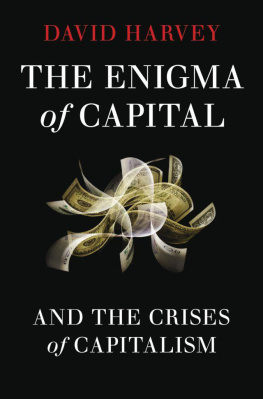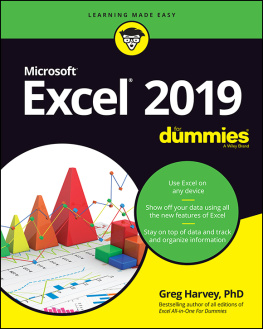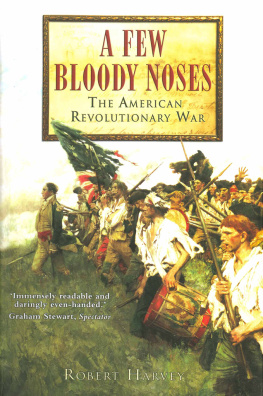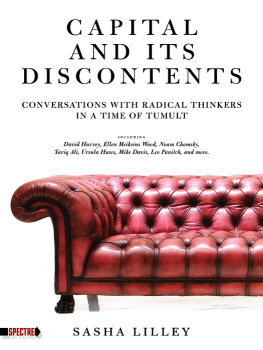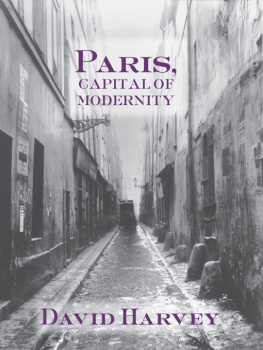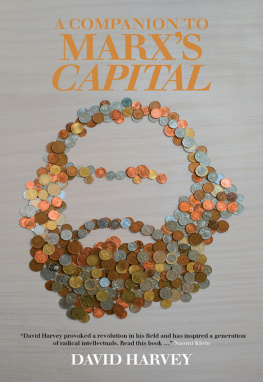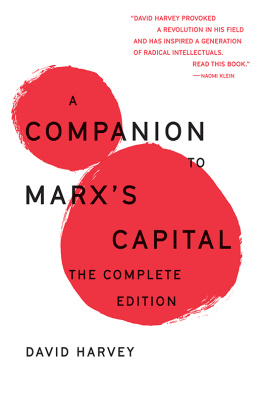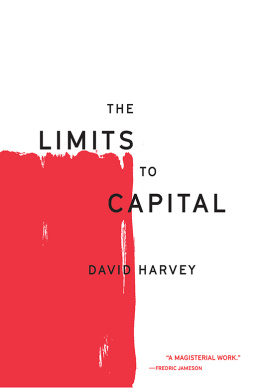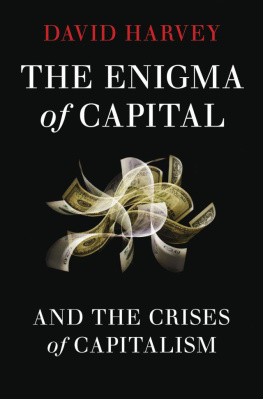Harvey - The enigma of capital and the crisis of capitalism
Here you can read online Harvey - The enigma of capital and the crisis of capitalism full text of the book (entire story) in english for free. Download pdf and epub, get meaning, cover and reviews about this ebook. City: New York, Oxford (England), year: 2011, publisher: Oxford University Press, genre: Science. Description of the work, (preface) as well as reviews are available. Best literature library LitArk.com created for fans of good reading and offers a wide selection of genres:
Romance novel
Science fiction
Adventure
Detective
Science
History
Home and family
Prose
Art
Politics
Computer
Non-fiction
Religion
Business
Children
Humor
Choose a favorite category and find really read worthwhile books. Enjoy immersion in the world of imagination, feel the emotions of the characters or learn something new for yourself, make an fascinating discovery.
The enigma of capital and the crisis of capitalism: summary, description and annotation
We offer to read an annotation, description, summary or preface (depends on what the author of the book "The enigma of capital and the crisis of capitalism" wrote himself). If you haven't found the necessary information about the book — write in the comments, we will try to find it.
The enigma of capital and the crisis of capitalism — read online for free the complete book (whole text) full work
Below is the text of the book, divided by pages. System saving the place of the last page read, allows you to conveniently read the book "The enigma of capital and the crisis of capitalism" online for free, without having to search again every time where you left off. Put a bookmark, and you can go to the page where you finished reading at any time.
Font size:
Interval:
Bookmark:
The Enigma of Capital
ALSO BY DAVID HARVEY
The Limits to Capital (1982)
The Condition of Postmodernity (1989)
The New Imperialism (2003)
A Brief History of Neoliberalism (2005)
Spaces of Global Capitalism (2006)
The Communist Manifesto: New Introduction (2009)
Cosmopolitanism and the Geographies of Freedom (2009)
Social Justice and the City: Revised Edition (2009)
A Companion to Marxs Capital (2010)
and the Crises of Capitalism
DAVID HARVEY


Oxford University Press, Inc., publishes works that further Oxford Universitys objective of excellence in research, scholarship, and education.
Oxford New York
Auckland Cape Town Dar es Salaam Hong Kong Karachi Kuala Lumpur Madrid Melbourne Mexico City Nairobi New Delhi Shanghai Taipei Toronto
With offices in
Argentina Austria Brazil Chile Czech Republic France Greece Guatemala Hungary Italy Japan Poland Portugal Singapore South Korea Switzerland Thailand Turkey Ukraine Vietnam
Copyright 2010 by David Harvey
Published in North America
by Oxford University Press, Inc.
198 Madison Avenue, New York, NY 10016
www.oup.com
Published in the United Kingdom in 2010 by Profile Books Ltd.
Oxford is a registered trademark of Oxford University Press
All rights reserved. No part of this publication may be reproduced, stored in a retrieval system, or transmitted, in any form or by any means, electronic, mechanical, photocopying, recording, or otherwise, without the prior permission of Oxford University Press.
Library of Congress Cataloging-in-Publication data is available
ISBN: 978-0-19-975871-5
Printed in the United States of America on acid-free paper
This book is about capital flow.
Capital is the lifeblood that flows through the body politic of all those societies we call capitalist, spreading out, sometimes as a trickle and other times as a flood, into every nook and cranny of the inhabited world. It is thanks to this flow that we, who live under capitalism, acquire our daily bread as well as our houses, cars, cell phones, shirts, shoes and all the other goods we need to support our daily life. By way of these flows the wealth is created from which the many services that support, entertain, educate, resuscitate or cleanse us are provided. By taxing this flow states augment their power, their military might and their capacity to ensure an adequate standard of life for their citizens. Interrupt, slow down or, even worse, suspend the flow and we encounter a crisis of capitalism in which daily life can no longer go on in the style to which we have become accustomed.
Understanding capital flow, its winding pathways and the strange logic of its behaviour is therefore crucial to our understanding of the conditions under which we live. In the early years of capitalism, political economists of all stripes struggled to understand these flows and a critical appreciation of how capitalism worked began to emerge. But in recent times we have veered away from the pursuit of such critical understanding. Instead, we build sophisticated mathematical models, endlessly analyse data, scrutinise spread sheets, dissect the detail and bury any conception of the systemic character of capital flow in a mass of papers, reports and predictions.
When Her Majesty Queen Elizabeth II asked the economists at the London School of Economics in November 2008 how come they had not seen the current crisis coming (a question which was surely on everyones lips but which only a feudal monarch could so simply pose and expect some answer), the economists had no ready response. Assembled together under the aegis of the British Academy, they could only confess in a collective letter to Her Majesty, after six months of study, rumination and deep consultation with key policy makers, that they had somehow lost sight of what they called systemic risks, that they, like everyone else, had been lost in a politics of denial. But what was it that they were denying?
My early seventeenth-century namesake William Harvey (like me, born a Man of Kent) is generally credited with being the first person to show correctly and systemically how blood circulated through the human body. It was on this basis that medical research went on to establish how heart attacks and other ailments could seriously impair, if not terminate, the life force within the human body. When the blood flow stops the body dies. Our current medical understandings are, of course, far more sophisticated than Harvey could have imagined. Nevertheless, our knowledge still rests on the solid findings that he first laid out.
In trying to deal with serious tremors in the heart of the body politic, our economists, business leaders and political policy makers have, in the absence of any conception of the systemic nature of capital flow, either revived ancient practices or applied postmodern conceptions. On the one hand the international institutions and pedlars of credit continue to suck, leech-like, as much of the lifeblood as they can out of all the peoples of the world no matter how impoverished through so-called structural adjustment programmes and all manner of other stratagems (such as suddenly doubling fees on our credit cards). On the other, the central bankers are flooding their economies and inflating the global body politic with excess liquidity in the hope that such emergency transfusions will cure a malady that calls for far more radical diagnosis and interventions.
In this book I attempt to restore some understanding of what the flow of capital is all about. If we can achieve a better understanding of the disruptions and destruction to which we are all now exposed, we might begin to know what to do about it.
David Harvey
New York, October 2009
The Disruption
Something ominous began to happen in the United States in 2006. The rate of foreclosures on housing in low income areas of older cities like Cleveland and Detroit suddenly leapt upwards. But officialdom and the media took no notice because the people affected were low income, mainly African-American, immigrant (Hispanics) or women single-headed households. African-Americans in particular had actually been experiencing difficulties with housing finance from the late 1990s onwards. Between 1998 and 2006, before the foreclosure crisis struck in earnest, they were estimated to have lost somewhere between $71 billion and $93 billion in asset values from engaging with so-called subprime loans on their housing. But nothing was done. Once again, as happened during the HIV/AIDS pandemic that surged during the Reagan administration, the ultimate human and financial cost to society of not heeding clear warning signs because of collective lack of concern for, and prejudice against, those first in the firing line was to be incalculable.
It was only in mid-2007, when the foreclosure wave hit the white middle class in hitherto booming and significantly Republican urban and suburban areas in the US south (particularly Florida) and west (California, Arizona and Nevada), that officialdom started to take note and the mainstream press began to comment. New condominium and housing tract development (often in bedroom communities or across peripheral urban zones) began to be affected. By the end of 2007, nearly 2 million people had lost their homes and 4 million more were thought to be in danger of foreclosure. Housing values plummeted almost everywhere across the US and many households found themselves owing more on their houses than they were worth. This set in motion a downward spiral of foreclosures that depressed housing values even further.
Next pageFont size:
Interval:
Bookmark:
Similar books «The enigma of capital and the crisis of capitalism»
Look at similar books to The enigma of capital and the crisis of capitalism. We have selected literature similar in name and meaning in the hope of providing readers with more options to find new, interesting, not yet read works.
Discussion, reviews of the book The enigma of capital and the crisis of capitalism and just readers' own opinions. Leave your comments, write what you think about the work, its meaning or the main characters. Specify what exactly you liked and what you didn't like, and why you think so.

